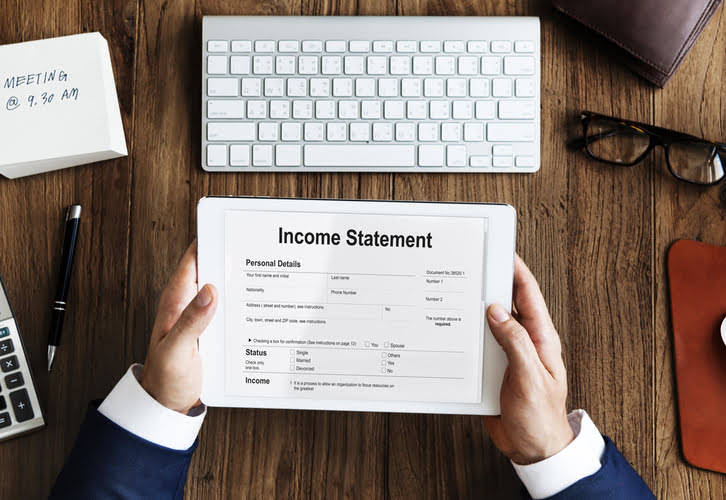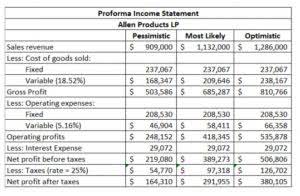
Expense deductions under cash basis accounting are recorded when payments are made, aligning expense reporting with cash outflows. This provides a transparent view of financial obligations and resource allocation. Understanding cash basis bookkeeping accounting affects how businesses manage their finances and meet tax obligations.
Learn which accounting method will work best for your business

For instance, I recently took on a client who had been running their business on a cash basis when they experienced a sharp revenue downturn. Since they hadn’t managed their revenues correctly, they couldn’t quickly adjust their expenses to accommodate. It wasn’t that their numbers were wrong; they just didn’t have the financial information necessary to make speedy decisions. Improper working capital management and reporting hid the risk of their business operations and the changes happening in the company.
How are financial statements prepared under cash basis accounting?
Cash basis accounting is typically not aligned with Generally Accepted Accounting Principles (GAAP), as GAAP requires accrual basis accounting. The adoption of cash basis bookkeeping aligns with specific regulatory frameworks and tax requirements. They must consistently use this method to report income and expenses unless formally changed.
In what situations is it appropriate to implement cash basis accounting methods?
If the project’s time span is greater than one year, the company’s income statements will appear misleading as they show the company incurring large losses one year followed by great gains the next. This approach can be beneficial for smaller businesses with limited resources since it provides a clear picture of their current financial state without having to deal with complex accounting methods. However, it may not always provide an accurate representation of long-term profitability or future growth potential since some revenues may be delayed due to different factors such as outstanding invoices. Cash basis accounting does not provide a comprehensive picture of a business’s financial health. It ignores transactions that haven’t involved actual cash, leading to an incomplete understanding of overall profitability and financial position.

If you have inventory, it’s crucial to consult with a tax professional to determine the correct way to account for it and whether any special rules apply to your business. While the IRS allows many small businesses to use cash basis accounting, it’s important to remember that states may have their own specific requirements. Some states might mandate accrual accounting for certain types of businesses or income levels. One of the key advantages of cash basis cash basis accounting measures income based on accounting is its potential to impact your taxes.
- This straightforward approach provides a clear picture of a business’s cash flow, making it easier for small business owners to manage their finances without needing extensive accounting knowledge.
- While the exact form varies across industries, what matters is that the income results from business activity, either through core operations or secondary streams.
- This applies to businesses selling physical products, digital goods, or subscriptions.
- Note that the net income from the income statement carries over to the cash flow statement, and the cash at the end of the year on the cash flow statement matches the cash figure on the balance sheet.
- It’s easy to understand and implement without the need for complex accounting procedures.
Accrual Accounting vs. Cash Basis Accounting: Example

This straightforward approach provides a clear picture of a business’s cash flow, making it easier for small business owners to manage their finances without needing extensive accounting knowledge. Shifting from accrual to cash basis accounting requires understanding both methods and their impacts on financial reporting and tax obligations. This transition is often pursued by small businesses seeking simplicity or experiencing cash flow challenges. The process requires adjustments to ensure financial statements reflect cash transactions accurately and that prior accruals are properly addressed. Revenue is recorded only when payment is received, and expenses are logged when they are paid. For instance, a freelance graphic designer using cash basis accounting records income when a client pays an invoice, not when the invoice is sent.

- If you harvest and sell crops in a period different from when you planted them, you can deduct the cost of producing the crop in the same accounting year you realize and recognize its income.
- Learn how to set up a small business accounting systems with this step-by-step guide.
- It may be difficult to gauge profitability or assess future financial risks, especially if a company relies on credit or has significant delayed payments.
- The AI algorithm continuously learns through a feedback loop which, in turn, reduces false anomalies.
- Under this method, businesses can defer income or accelerate expenses by managing the timing of cash transactions, impacting taxable income for a given year.
- Unlike the accrual basis, which records transactions when they are incurred, cash basis accounting provides an immediate view of cash flow.
It requires minimal tracking of accounts receivable or payable and focuses solely on transactions that affect the actual cash balance. It also follows the logic that revenue isn’t truly “earned” until you’ve received the actual cash from the sale, regardless of what a customer actually owes you. Retail businesses, on the other hand, might lean towards accrual accounting due to the nature of their transactions. With inventory management being a significant aspect of their operations, accrual accounting provides a Grocery Store Accounting more accurate reflection of their financial health.
